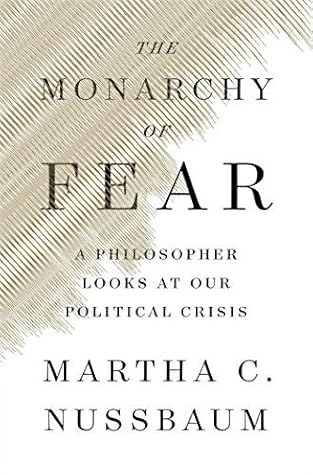More on this book
Community
Kindle Notes & Highlights
Read between
April 5 - June 24, 2019
The problems that globalization and automation create for working-class Americans are real, deep, and seemingly intractable. Rather than face those difficulties and uncertainties, people who sense their living standard declining can instead grasp after villains, and a fantasy takes shape: if “we” can somehow keep “them” out (build a wall) or keep them in “their place” (in subservient positions), “we” can regain our pride and, for men, their masculinity. Fear leads, then, to aggressive “othering” strategies rather than to useful analysis.
the America for which they are nostalgic never existed, not fully; it was a work in progress, a set of dynamic aspirations put in motion by tough work, cooperation, hope, and solidarity over a long period of time. A just and inclusive America never was and is not yet a fully achieved reality. Second, this present moment may look like backsliding from our march toward human equality, but it is not the apocalypse, and it is actually a time when hope and work can accomplish a great deal of good.
Eighteenth-century philosopher Adam Smith, an early opponent of both colonial conquest and the slave trade, observed that it is difficult for people to sustain concern for people at a distance, when fear can so easily call the mind back to the self. His example is an earthquake in China. Hearing of the disaster, a humane person in Europe will be extremely upset and concerned—for a while. But if that same person hears that he (Smith typically imagines males) will lose his little finger the following day, he will completely forget the fate of millions of people: “the destruction of that immense
...more
And what is “the West”? It is not a geographical entity, since it includes Australia and Poland and excludes nations such as Egypt and Morocco that are further west than some of the included nations. And, as Beinart notes, it is not a political or economic term either, since Japan, South Korea, and India are not included. Basically, it is an appeal to shared religion and shared racial identity: to Christianity (with some Jews included) and to whiteness (since Latin America does not appear to be included).
The speech is not about analysis, however; it is about stoking fear of the “south” and “east,” or, more precisely, of immigrants from those regions. Beinart’s conclusion seems to me correct: in Trump’s view, “America is at its core Western: meaning white and Christian (or at least Judeo-Christian). The implication is that anyone in the United States who is not white and Christian may not truly be American but rather an imposter and a threat.”
fear of Muslims today draws on all the mechanisms of fear I have discussed: innate tendencies, deeply embedded psychological heuristics, and people’s responsiveness to political rhetoric. This type of amorphous fear, generated in a climate of ignorance and fed by imprecise and alarmist rhetoric, is the enemy of any sane dialogue about our future.
the Jim Crow South, often the plates off which black people had eaten were broken so that they could not be used again. Baseball great Hank Aaron describes this common practice in his autobiography, noting, “If dogs had eaten off those plates, they’d have washed them.”21 So the US South had convoluted and bizarre practices regarding food: blacks could cook and serve food for whites, but they were thought to contaminate the plates they themselves used.
So they meet with their seconds out in New Jersey, where anything goes. Hamilton shoots in the air. Burr, however, shoots to kill. To the extent that envy’s malice rules society, virtue will often lose.
President Obama’s tweet is now the most-liked tweet ever: “No one is born hating another person because of the color of his skin or his background or his religion. People must learn to hate, and if they can learn to hate, they can be taught to love, for love comes more naturally to the human heart than its opposite.”
I am far less interested in Trump’s likely views than about what the enthusiasm for these utterances in Trump’s “base”—and the fact that they were not disqualifying for the larger group of Americans who voted for him—shows us about attitudes to women in our country.


